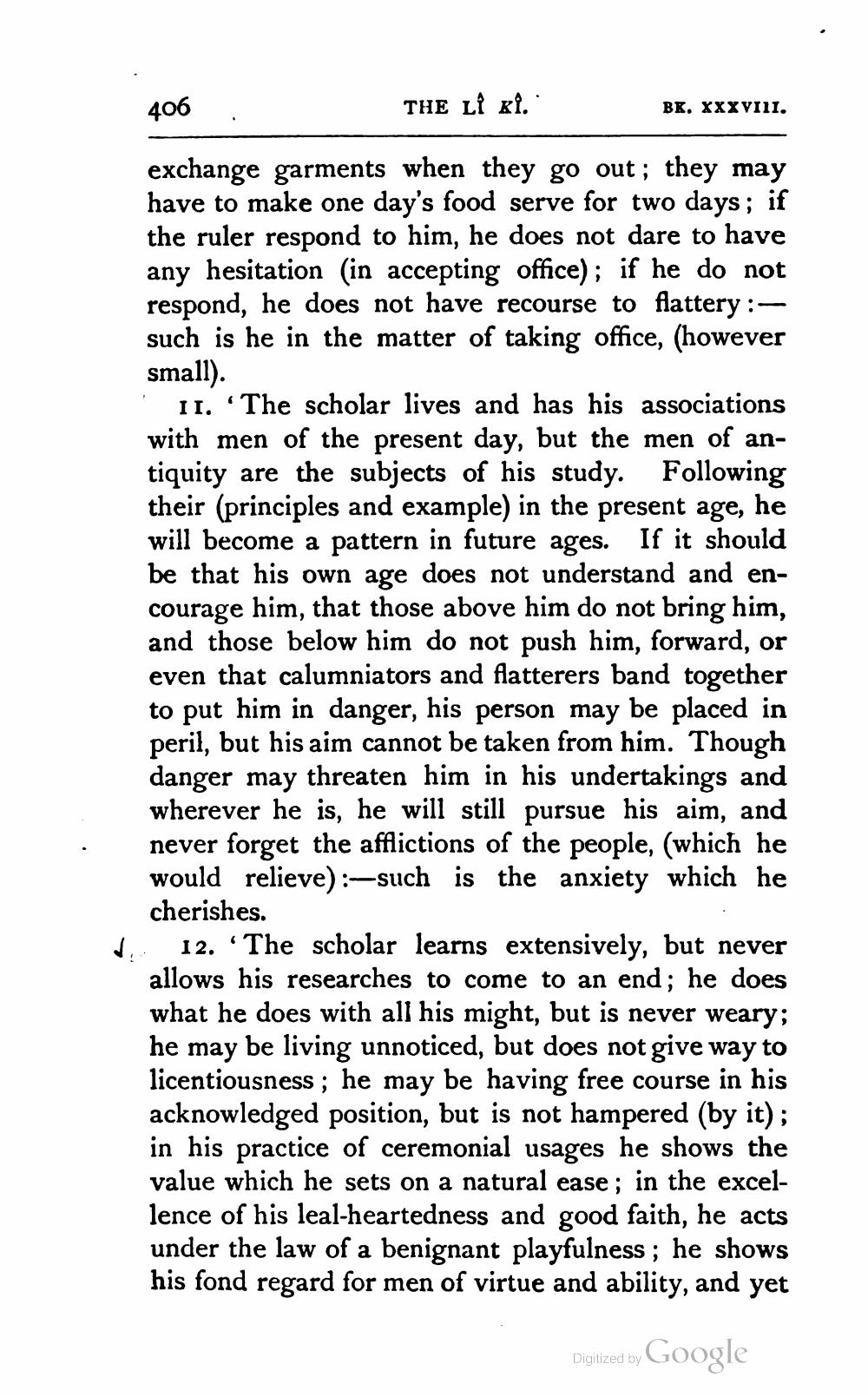________________
406
THE LÎ ki.
BK. XXXVIII.
exchange garments when they go out; they may have to make one day's food serve for two days; if the ruler respond to him, he does not dare to have any hesitation (in accepting office); if he do not respond, he does not have recourse to flattery :such is he in the matter of taking office, (however small).
II. "The scholar lives and has his associations with men of the present day, but the men of antiquity are the subjects of his study. Following their (principles and example) in the present age, he will become a pattern in future ages. If it should be that his own age does not understand and encourage him, that those above him do not bring him, and those below him do not push him, forward, or even that calumniators and flatterers band together to put him in danger, his person may be placed in peril, but his aim cannot be taken from him. Though danger may threaten him in his undertakings and wherever he is, he will still pursue his aim, and never forget the afflictions of the people, (which he would relieve) :-—such is the anxiety which he cherishes. . 12. “The scholar learns extensively, but never
allows his researches to come to an end; he does what he does with all his might, but is never weary; he may be living unnoticed, but does not give way to licentiousness; he may be having free course in his acknowledged position, but is not hampered (by it); in his practice of ceremonial usages he shows the value which he sets on a natural ease; in the excellence of his leal-heartedness and good faith, he acts under the law of a benignant playfulness; he shows his fond regard for men of virtue and ability, and yet
Digitized by Google




